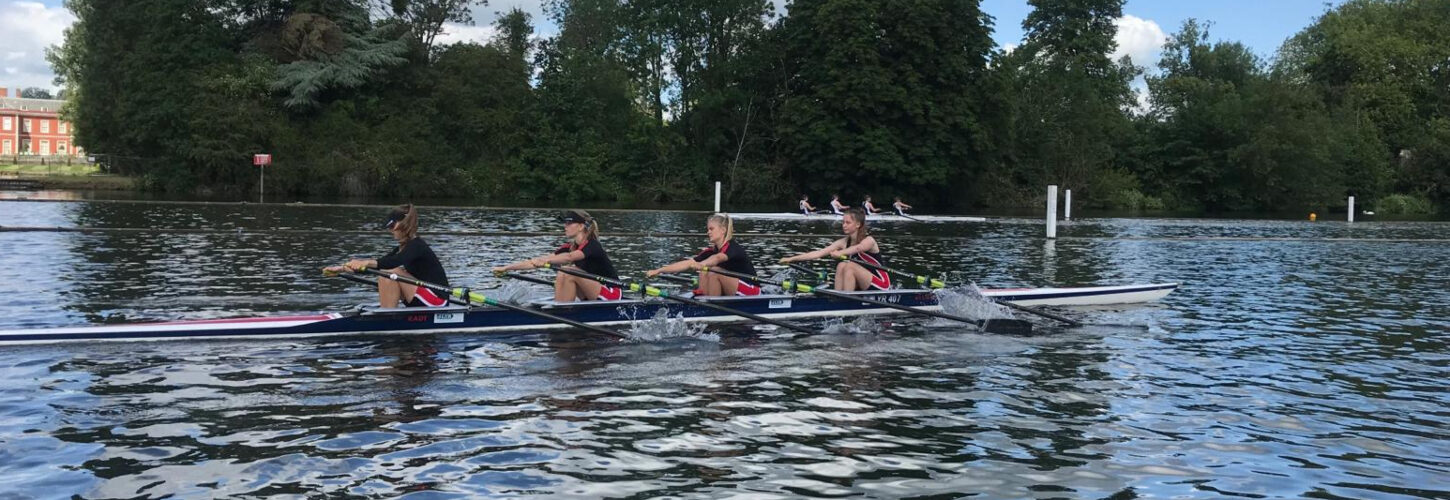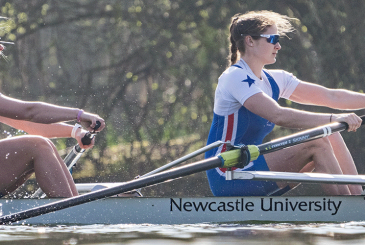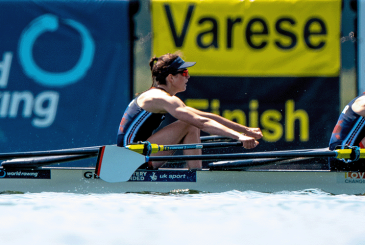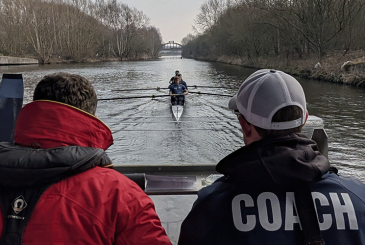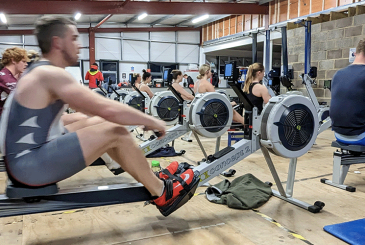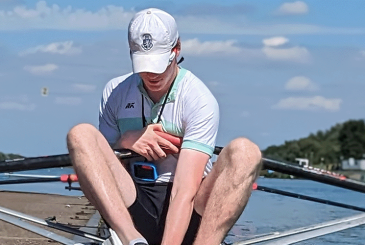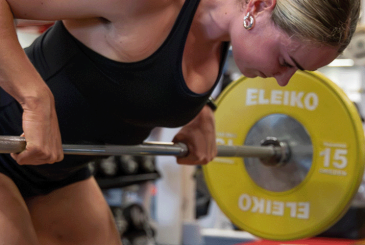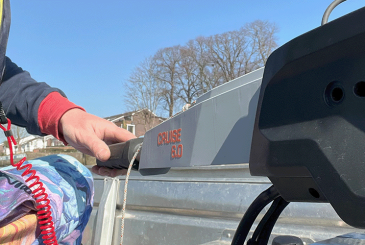In our #GreatCoaching series, two rowers from Mossbourne Community Academy pay tribute to their coach, Ollie James
Three individuals will be departing East London at the start of the new season. They’ll go in very different directions after almost four years of working together, but each has been boosted by their experiences of rowing in what, until recently, would have been an unlikely setting.
Athletes Robine Van Doorn and Maddie Coode, who have been friends throughout their time studying and rowing at Mossbourne Community Academy (MCA), are moving on to universities that are 4,000 miles apart.
Robine takes up a rowing scholarship at the University of Tulsa in the United States, with the ultimate aim of working in finance. Maddie will be reading medicine at Trinity Hall, Cambridge.
Meanwhile their coach for much of their school years, former Paralympic champion cox Ollie James, is beginning the next stage of his career at the British Rowing Start centre in Peterborough, identifying and helping to develop future Olympians.
He leaves behind a programme involving some 200 athletes, from Year 9 to 13, in curriculum PE, during lunchtime sessions and with a more of a performance focus higher up the school.
“In a way it’s good to be intimidated – if you get used to being uncomfortable that extends to other areas of life”
“A lot of people say, ‘I’m not sporty,’ but school makes it as easy as possible for people to row and it is recreational unless you want it to become competitive,” says Maddie.
With a few very notable exceptions, rowing opportunities in urban state schools have been limited before the work done by the likes of London Youth Rowing, from which the Mossbourne programme grew and which still provides coaches.
The academy grabbed newspaper headlines seven years ago when it advertised sixth form places for potential rowers, but that evolved under Ollie into a whole-school offering.
“We started building the programme up with some of the barriers that a school in the middle of an East London housing estate has,” he says. “For instance, most of the kids in the playground couldn’t swim.
“We made a lot of mistakes, but started to get to grips with it.”
“I was in the right place at the right time, but I was surrounded by the right people”
Raised in Stevenage, Ollie won a gold medal in the Great Britain PR3 mixed coxed four in Rio de Janeiro four summers ago, though says emphatically: “I’m not from a rowing background”.
Walking to his new job the morning after his return from Brazil – he was scared the jet lag would cause him to fall asleep if he left any later – he drew on the strong support he received as an athlete to create a template of the coach he wanted to become.
Before university, he says: “I had done nothing like fine-boat rowing, but I took part in the sea cadets and loved that. I had a huge role model in one of the leaders there, Alex Whyte. For him the life of the young person was the most important thing.
“I watched the Boat Race every year, though. From the age of 13 or 14, I would travel with my parents on the train to Hammersmith every year to watch it. It became a real obsession – I decided I wanted to go to Cambridge and row in the Boat Race.”
Cambridge may not have worked out, but he was able to start coxing when he began studying at Warwick University.
“I was really bad for the first two years, but I got there in the end.”
After graduating, Ollie relocated to Henley to join Leander Club, although they did not have a large sweep group at the time and “I was living off the Weetabix in the club room”.
He caught the attention of Mary McLachlan, coach of the Para four at the time, and was helped by Leander coach Jane Hall, who amassed a large bag of GB kit for him.
“I was in the right place at the right time, but I was surrounded by the right people who wanted to make it happen,” he recalls.
“That shaped me as a coach – the importance of simply being there for people who need it.”
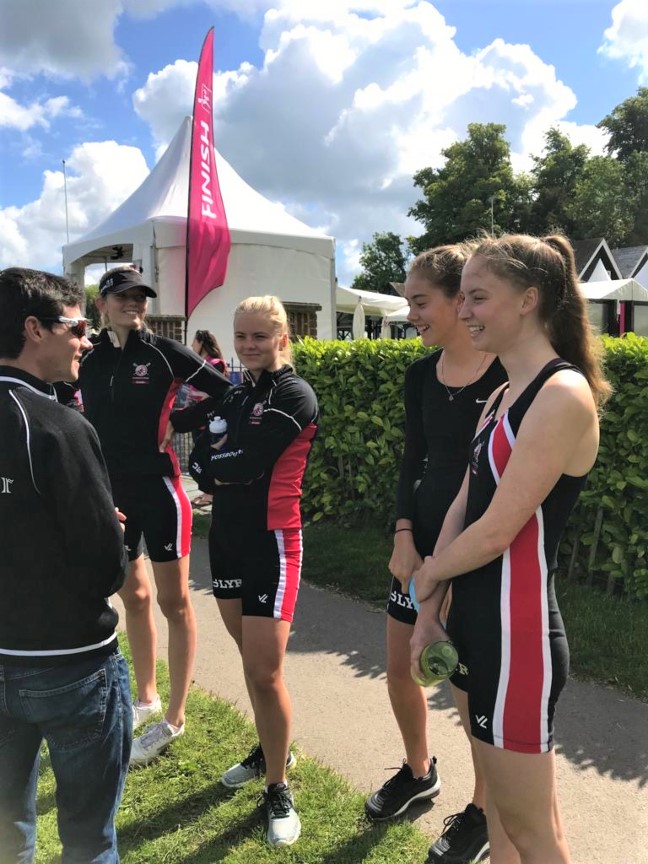
Maddie earned straight grade nines at GCSE, but says: “Sometimes it’s nice to think that rowing is my ‘chill thing’.
“Having the rowing gym as a space is nice. I would eat my lunch in there because it’s less stressful than the rest of the school.”
She started rowing in Year 7, when she was already 173cm (5ft 8in) tall, and one of the school coaches spotted her.
“Most people think it’s a bit crazy,” she says. “It’s not like other sports when you can chat while you’re doing it. But I’ve built some strong friendships. You realise, this person’s as crazy as me!”
One of her rowing career highlights was last summer’s trip to Henley Women’s Regatta, when she steered a quad [pictured above] that was pleased to qualify in the Aspirational event – the first time any of the athletes had competed at the regatta.
“I was petrified of messing up and hitting those big wooden booms, but it was so beautiful there,” she says.
“And in a way it’s good to be intimidated. If you get used to being uncomfortable that extends to other areas of life, like going to Cambridge, where everyone is so smart.
“I haven’t decided whether I’ll continue competitive rowing because people have told me medics don’t row, but Trinity Hall is right by the river, so I will see.”
“We had just got our kit and there were lots of fancy people in fancy boats – it made me a lot more proud”
Mossbourne offers any student in Hackney the chance of switching to the academy in Year 9 if they show an “aptitude for rowing”.
“MCA is a very high-performing school [academically], so students often use this as a route in,” says Ollie, who describes receiving applications from rowing fanatics. “It was often when you met them in person that the story would unravel.”
Robine Van Doorn followed this route, having been a cross-country runner and swimmer as a youngster, and she and her coach both agree that her motivation for rowing took a while to grow.
She says: “I had never really heard of rowing or how it worked. I didn’t expect it to be as mentally challenging. I had never had to put myself through as much pain willingly.
“I didn’t think I would row for that long and didn’t take it seriously in Year 9, but at the end of Year 10 we made a B-final at Brit Champs, which made me want to try harder to make A-finals.
“I started to pay more attention in sessions and take more of the coaching on board.”
She pays tribute to Ollie’s “attention to small details that make differences” and to the motivational abilities of Dan Brighton, the Mossbourne assistant coach who “knew how to get everyone into a place where they were happy to row”.
The 2019 Henley Women’s Regatta was a highlight for Robine too, and also a chance to see her future crew-mates as the University of Tulsa made the trip over.
“In five years, we had never been to Henley Women’s Regatta. We weren’t good enough before,” she says.
“We had just got our kit and there were lots of fancy people in fancy boats. It made me a lot more proud because we didn’t have the equipment others had.
“My parents were stuck in traffic and just arrived in time to see us race. I could hear them screaming from the bank.”
She is excited about the next chapter in Oklahoma, saying of the Tulsa programme: “They don’t take the biggest girls, but they want to help everyone progress.”
And she adds: “I think my studies are better because I’ve done rowing. With rowing you want to give up when it’s painful and it’s the same with studying.
“If you keep going to the end, the result will be better than if you had stopped.”


